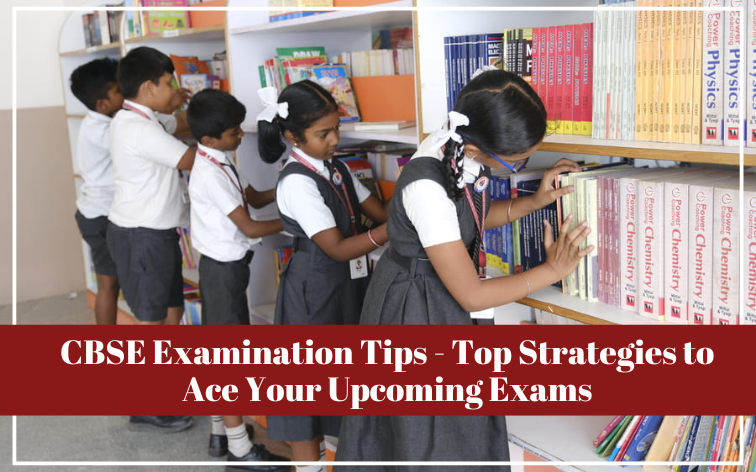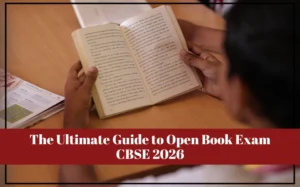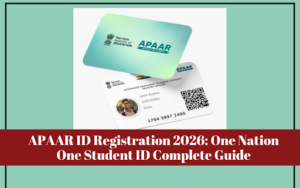.Exams are Nearing? To score good marks, you can follow your own study habits and methods with determination. However, to enhance or fine tune it, you can include some tips and strategies to learn efficiently. Some of the best CBSE examination tips are planning the day strategically, crafting a time table, and preparing as per the CBSE marking scheme. By including the given study methods and tactics, your CBSE exam preparation can be improved. Gradually incorporate these learning techniques for better results. In this article, we have listed the top 12 CBSE examination tips and strategies to ace your upcoming exams and get high scores.
At Mahalakshmi Vidya Mandir, one of the top CBSE schools in Trichy, we blend quality education with modern teaching methods to help students excel academically. With a holistic CBSE curriculum and smart classrooms, we nurture every learner to achieve success both in exams and in life.
12 Expert Tips to Get High Scores in CBSE Examination
Preparing for CBSE exams can feel overwhelming, but with the right strategies and mindset, you can achieve excellent results. Here are 12 expert tips to help you maximize your performance and sail through your examinations with confidence.
Tip 1: Plan Your Day Strategically
Efficient daily planning forms the backbone of successful exam preparation. Create your schedule the night before and stick to it consistently. Allocate specific hours to your weak areas while maintaining regular practice in your strong subjects. Most importantly, reserve dedicated time during the night for revision sessions to reinforce what you’ve learned throughout the day.
Tip 2: Be Creative With Your Time Table
Once you’ve identified what needs to be studied, craft a realistic and personalized study timetable. Break your day into manageable study blocks of one to two hours each. Assess your proficiency level for each topic and organize your study plan according to difficulty. Remember to include short breaks between sessions for mental refreshment—your brain needs these intervals to process and retain information effectively.
Tip 3: Understand the CBSE Marking Scheme
One of the most strategic approaches to scoring high is understanding exactly how examiners evaluate your answers. Review previous years’ marking schemes to identify how marks are distributed across different questions. Pay close attention to keywords and phrases that appear repeatedly in these schemes, as they indicate what evaluators are looking for. Structure your answers to be detailed yet concise, ensuring you cover all the points mentioned in the marking criteria.
Tip 4: Mind-Map Your Notes
Smart note-making is your secret weapon for effective revision. The human brain remembers visually organized information much better than plain text. When preparing notes, summarize chapters in your own words rather than copying directly from textbooks. Use bullet points, diagrams, and flowcharts to make concepts easier to grasp. Highlight key points, maintain organized notebooks for each subject, and ideally, dedicate one notebook per subject to avoid confusion during last-minute revision.
Tip 5: Practice Makes Perfect – Solve Previous Years’ Papers
There’s no substitute for practicing with actual exam papers. Collect previous years’ question papers and solve them religiously. CBSE schools regularly share sample papers and practice tests—make full use of these resources. Attempt these papers under exam-like conditions with proper timing. This practice helps you understand the exam pattern, identify areas where you’re falling short, and familiarize yourself with the marking system. Most importantly, it builds confidence and reduces exam-day anxiety.
Tip 6: Enroll for Mock Test Series
Mock tests simulate the actual examination environment and keep your preparation aligned with current exam requirements. Don’t just attempt the tests—thoroughly review your answers afterward. Learn how to present long-form answers effectively, understand where diagrams and statistical data should be included, and identify patterns in question types. This regular practice under timed conditions sharpens your exam-taking skills significantly.
Tip 7: Revise Regularly and Systematically
Consistent revision is the key to retaining information long-term. Rather than attempting to revise all subjects simultaneously, focus on one subject at a time for better concentration. Create a separate revision notebook containing summarized key points—formulas, definitions, important concepts, and dates. This condensed resource becomes invaluable during the final days before exams, allowing you to review essential information quickly and efficiently.
Tip 8: Strengthen Your Writing Practice
CBSE exams are primarily descriptive, making writing skills crucial for success. Practice writing answers clearly and succinctly, always adhering to the correct format for each question type. Use proper headings, sub-points, and bullet points where appropriate. Regular writing practice improves your speed, enhances presentation quality, and helps you express your knowledge more effectively—all vital factors in securing high marks.
Tip 9: Master Diagrams, Maps, and Flowcharts
Subjects like Science, Geography, and Biology often require visual representations. Well-drawn, properly labeled diagrams and charts not only fetch you additional marks but also make your answers more appealing to examiners. Practice drawing these visual aids regularly until you can reproduce them accurately and quickly during exams. Remember, a clear diagram can sometimes communicate concepts better than lengthy paragraphs.
Tip 10: Seek Clarity on Your Doubts Immediately
Never let doubts accumulate until it’s too late. Be proactive in seeking clarification from teachers, peers, or through online forums. Join study groups where you can learn from classmates and engage in productive discussions. Leverage reliable online resources for additional explanations. The sooner you address your confusion, the stronger your understanding becomes.
Tip 11: Manage Exam-Related Stress Effectively
Stress is a natural part of exam preparation, but it shouldn’t control you. When negative thoughts arise, examine them closely, you’ll often find they’re unrealistic. Challenge thoughts that label you as a failure. Remember that one exam doesn’t define your abilities, and with consistent effort, you can always improve. Exercise is particularly important during exam time, even when you feel you can’t spare the time. Regular aerobic exercise releases endorphins – natural mood elevators that combat stress, depression, and anxiety. This “natural high” improves your mental state, aids in better concentration, and keeps you physically fit throughout the demanding exam period.
Tip 12: Set Realistic Expectations
While aiming high is important, be realistic about your expectations. You usually know when you’ve made mistakes during an exam, so factor these into your expected marks. Concentrate on your achievements rather than dwelling on what went wrong. If your results fall short of expectations, remember that rechecking options are available. What matters most is learning from the experience and approaching your next attempt with renewed determination and better strategies.
Learn more: 15 Effective Study Techniques for Students
How to Effectively Implement these Tips?
Below, we listed the guidelines that can help you to effectively implement the tips:
Start with a realistic assessment of your current preparation level. Identify your strong and weak subjects, evaluate how much time you have until exams, and then prioritize accordingly.
Begin implementation gradually rather than trying to adopt all strategies at once. Pick 2-3 tips that align with your immediate needs, perhaps starting with time-tabling and regular revision, and master them before incorporating additional techniques.
Set specific, measurable goals for each study session. Instead of vague intentions like “study math today,” commit to concrete targets such as “complete 10 previous year questions on trigonometry” or “create mind maps for two history chapters.”
Track your progress weekly and adjust your strategy as needed. Maintain a simple log of topics covered, mock test scores, and areas requiring more attention. If something isn’t working, like a particular revision method or study schedule, modify it.
Build a support system and maintain accountability. Share your study plan with family, join study groups with committed peers, or find a study partner who can keep you motivated. Regular check-ins with teachers or mentors help you stay on track, clarify doubts promptly, and receive valuable feedback on your preparation strategy.
Best CBSE School in Trichy for Better Education
Mahalakshmi Vidya Mandir CBSE stands out as one of the best CBSE schools in Trichy, dedicated to imparting the right knowledge in the right way to every student. The school offers a comprehensive CBSE curriculum with English as the medium of instruction, ensuring strong academic foundations. With a high-tech campus featuring smart classrooms and elite English-speaking faculty, our Trichy school provides an environment that promotes learning beyond textbooks. By combining academics with extracurricular activities, the school focuses on holistic growth – making it not only a top CBSE school in Trichy but also a nurturing space for well-rounded student development.
FAQs on CBSE Examination Tips
1. What are the most effective strategies to prepare for CBSE board exams?
The best way to prepare for CBSE exams is by following a structured study plan. Start by planning your day strategically, creating a well-balanced timetable, and focusing on both strong and weak subjects. Incorporate smart note-making, regular revision, and consistent practice with previous years’ papers to strengthen your understanding and improve exam performance.
2. How important is understanding the CBSE marking scheme?
Understanding the CBSE marking scheme is extremely crucial for scoring high. It helps you know how marks are allocated and what keywords or formats examiners look for. Reviewing previous marking schemes ensures you write concise, structured answers that meet the board’s evaluation criteria.
3. How can I reduce exam stress during CBSE board preparation?
Exam stress is natural, but it can be managed through positive thinking, good sleep, and physical activity. Recognize and challenge negative thoughts, take regular short breaks, and include light exercise or breathing techniques in your daily routine. Exercise releases endorphins that naturally reduce anxiety and improve concentration.
4. Why should students take mock tests and solve previous years’ papers?
Mock tests and past papers are excellent tools for familiarizing yourself with the exam format, timing, and question patterns. They help you identify weak areas, improve writing speed, and build confidence. Practicing under real exam conditions also reduces nervousness on the actual exam day.
5. How can I improve my writing skills for CBSE descriptive exams?
Writing practice is essential for descriptive exams. Work on presenting answers in a clear, structured manner with headings, sub-points, and diagrams where relevant. Consistent writing practice improves speed, presentation, and clarity, which are key factors in earning higher marks.
6. Why is Mahalakshmi Vidya Mandir considered one of the best CBSE schools in Trichy?
Mahalakshmi Vidya Mandir (CBSE) Trichy committed to academic excellence and holistic education. With a modern campus, smart classrooms, and experienced English-speaking faculty, the school blends quality teaching with extracurricular opportunities to develop confident, well-rounded students ready to excel in both exams and life.




